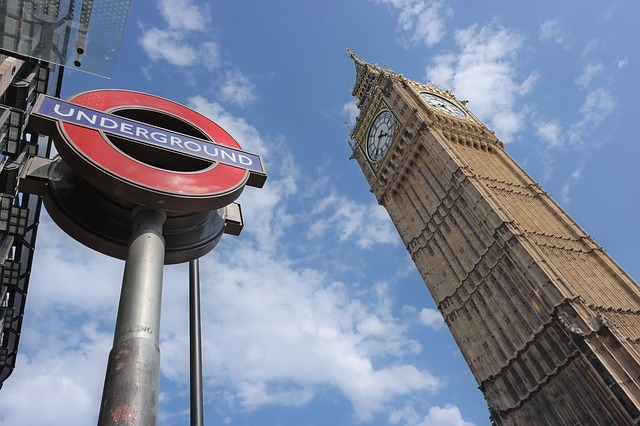London versus ISIS
Posted By Dominique Moisi on May 31, 2016 @ 13:58
 ‘I feel so proud of my city,’ my interlocutor says, referring to the election of the first Muslim [1], Sadiq Khan, as Mayor of London. She is Catholic, though she identifies first and foremost as British. But, like many other Londoners, she was inspired by Khan’s message of hope over fear.
‘I feel so proud of my city,’ my interlocutor says, referring to the election of the first Muslim [1], Sadiq Khan, as Mayor of London. She is Catholic, though she identifies first and foremost as British. But, like many other Londoners, she was inspired by Khan’s message of hope over fear.
Khan’s election contrasts sharply with dynamics that seem to be at work elsewhere in the West. European populations—in Hungary and Poland [2], and with a close call in Austria—are falling prey to increasingly radical, openly xenophobic populism. In the United States, Donald Trump’s bombastic bigotry [3] has won him the Republican nomination for the presidency.
Londoners certainly had the option of intolerance. They could have voted for the Conservative candidate, Zac Goldsmith, who persistently accused Khan of having ties with ‘radical Muslims figures.’
The expectation, without reason or evidence, that any Muslim person is linked to extremism is undeniably racist. Levelling such accusations against a Muslim running for public office has nothing to do with protecting the public interest. The purpose of such tactics is to reinforce the notion that no Muslim can be trusted to hold an important leadership position.
Many attempt to justify this view by pointing out that the Koran makes no distinction between ‘what belongs to God and what belongs to Caesar.’ But that implies that all Muslims behave exclusively according to the tenets of the Koran, without regard for secular law. That is simply not true.
In some cases, there are questions about how Islam’s adherents, including some of its most visible representatives, approach the subject of Islam’s role in the West. The scholar Tariq Ramadan [4], for example, has spoken of the rise of a ‘European Islam,’ which anchors Islamic principles to the cultural reality of Western Europe. I fully support this notion, as long as this new Islam shares without reservation the values, beliefs, and memories of Europeans (including recognition of Israel’s right to exist). Unfortunately, when I expressed this to Ramadan in a debate years ago, he remained silent.
The challenges that may arise when incorporating Islam into Europe’s already-diverse societies do not, in any sense, mean that Muslims cannot be trusted to lead well. Yet some, particularly in France, are now warning that Khan’s election is the first step toward a not-too-distant future in which Muslims impose Islamic law on European countries, a scenario made vivid by Michel Houellebecq’s latest novel, Submission. (The book, however, can be interpreted less as a prediction of a Muslim takeover than as a criticism of French political correctness, which seems to adhere to the mantra, ‘Anyone but the National Front.’)
The implications of Khan’s election are likely to contradict the bigots and fear mongers. Indeed, beyond acting as a slap in the face to Europe’s populist forces, Khan’s victory will deal a blow to the “Islamic State” (ISIS), which for the purpose of recruitment depends on young European Muslims’ feelings of humiliation, marginalization, and failure.
With a Muslim as Mayor of London—a great Western city, which has suffered brutal terrorist attacks—it will be that much harder for jihadists to convince potential recruits in the West that their governments and societies are seeking to repress them. If young Muslims can succeed in the West, why would they give up their lives for ISIS, which is already losing ground in Iraq and Syria?
Of course, Muslim success stories like Khan’s remain too few and far between. But there is much to be gained from recognizing, publicizing, and multiplying them. This would probably be easier to achieve in Britain than in France, which remains fixated on laïcité (the absolute separation of church and state that is at the core of French republican identity).
In short, by rejecting Islamophobia and reiterating their belief in the values of an open society, Londoners have dealt a blow to Islamists. But it would be dangerous to overestimate the implications of Khan’s election.
For one thing, London is hardly representative of the entire United Kingdom, much less the rest of Europe or the West as a whole. The city is more cosmopolitan than New York, as culturally dynamic as Berlin, and much more self-confident than Paris. It is exceptional in its energy and openness. If only Londoners were to vote in the June 23 referendum, they would most likely choose to remain in the EU, despite the Union’s flaws.
For another, London’s openness and confidence is dependent, at least partly, on economic growth and prosperity. After all, it is far easier to share a large and growing pie. The “Polish plumber” who contributed so clearly to the beautification of London starting in the early 1990s was an economic asset, never a threat, and at least indirectly paved the way for workers from other countries and cultures.
Nonetheless, the openness of Londoners—especially at a moment when so many of their Western counterparts are being tempted by bigotry—is worthy of celebration. Rather than answering fear with more fear, they elected the better candidate, regardless of religion. That is how it should be.
Article printed from The Strategist: https://www.aspistrategist.org.au
URL to article: https://www.aspistrategist.org.au/london-versus-isis/
URLs in this post:
[1] election of the first Muslim: https://www.project-syndicate.org/commentary/sadiq-khan-victory-enlightened-islam-by-bernard-henri-levy-2016-05
[2] Hungary and Poland: https://www.project-syndicate.org/commentary/leaders-building-illiberal-regimes-in-hungary-and-poland-by-nina-l--khrushcheva-2016-03
[3] bombastic bigotry: https://www.project-syndicate.org/focal-points/donald-trump-an-american-horror-story
[4] Tariq Ramadan: https://www.project-syndicate.org/columnist/tariq-ramadan
Click here to print.